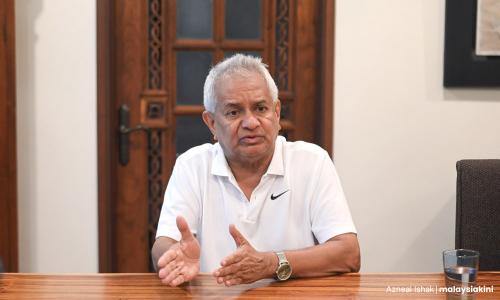Pardon for Najib not legally possible now, says Tommy Thomas
EXCLUSIVE | The fourth and final part of an exclusive interview with former attorney-general Tommy Thomas, who initiated legal charges against former prime minister Najib Abdul Razak and others, delves into the complex area of pardons.
Malaysiakini: Let’s go to the problem of legal pardon. What would be the process for a pardon in Najib’s case?
Tommy Thomas: I’m glad you asked. There’s been so much disinformation out there. First of all, you must remember pardon in Malaysia is set out in Article 42 of the Federal Constitution and it is perilous to compare it to other countries, as it is a unique Malaysian mechanism.
There is a Pardons Board in all the states where the rulers chair it. We need only focus on the Federal Territories because the relevant court is the Jalan Duta Court. So the FT Pardons Board is chaired by the Agong, and the FT minister is a member. So are the AG and three or four members of civil society.
So basically, everybody who has been tried in the KL court comes under the KL Pardons Board. There are some 50,000 prisoners in our jails - convicted prisoners. All 50,000 of them are entitled to apply for pardon, under Article 42. There are practical problems: because if 50,000 were to apply, the Pardons Board would collapse, they cannot sustain it. So, there is a process built over decades since Merdeka. Essentially, you have to serve one-third of your jail sentence before you apply.
As required under the Federal Constitution?
I think it is more of a convention. Otherwise, there would be too many applications. It is just being practical. Every prisoner is to be treated equally. The FT Pardons Board meets three or four times a year traditionally. Each time they sit, they consider about 10 applications.
So let’s say in a typical year, they have 50 applications by 50 convicts. So the first problem is how do you become one of the 50. You can’t jump queue. There is a waiting time. So Najib has to wait his turn, otherwise you are unfair to other prisoners, who have been waiting for years before submitting their applications.
Let’s next consider what happens when...
RM12.50 / month
- Unlimited access to award-winning journalism
- Comment and share your opinions on all our articles
- Gift interesting stories to your friends
- Tax deductable


